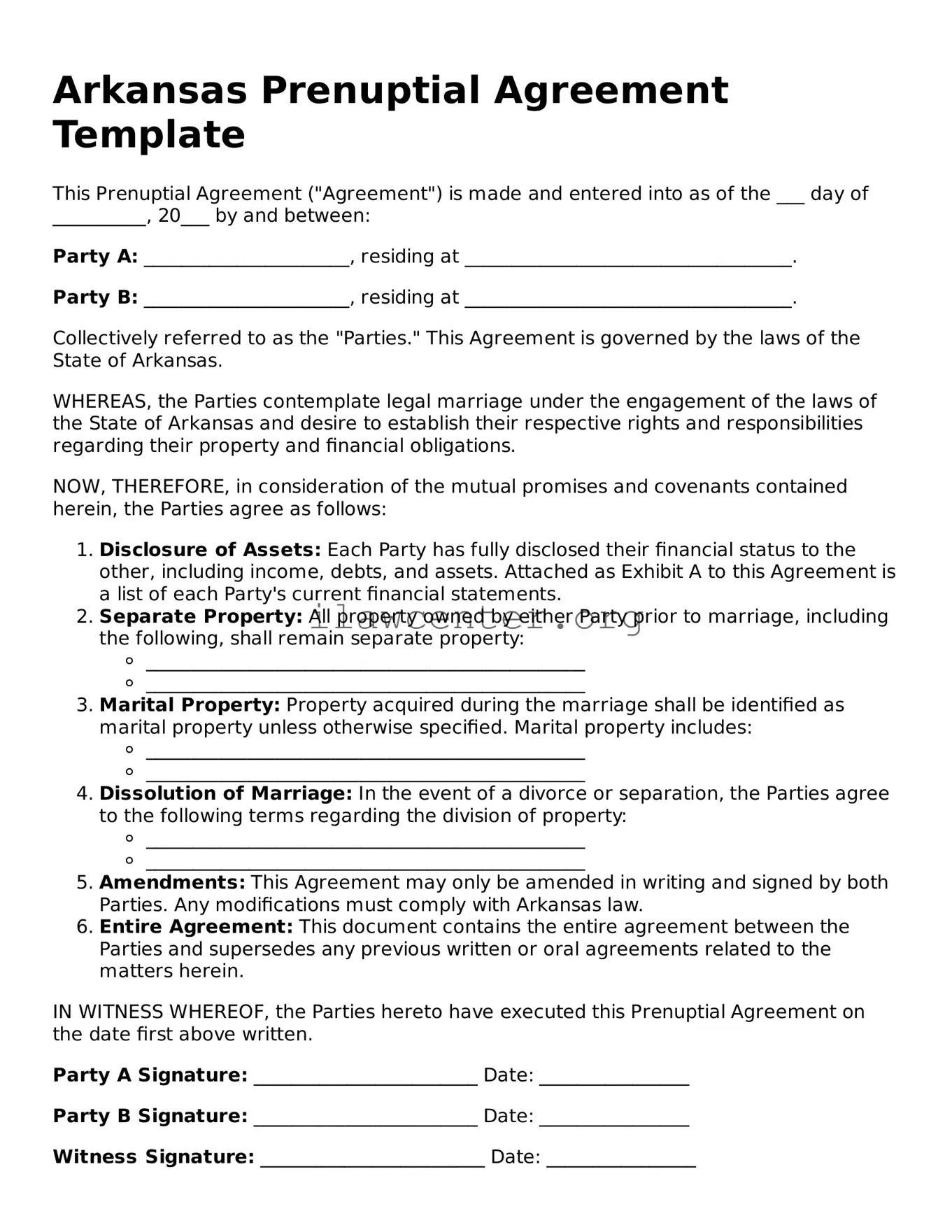Instructions on Utilizing Arkansas Prenuptial Agreement
Filling out the Arkansas Prenuptial Agreement form involves providing essential information about both parties before entering into a marital union. Following these steps will help ensure that the process is straightforward and organized.
- Obtain the form. You can find the Arkansas Prenuptial Agreement form online or from local legal offices.
- Read the form carefully. Understanding each section of the form is important before you start filling it out.
- Provide personal information. Fill in the names of both parties, including any previous names and current addresses.
- Disclose assets and debts. List all assets and debts for both parties. This includes property, bank accounts, and loans.
- Specify terms. Clearly outline the terms you wish to include in the agreement. Be specific about asset division and any other relevant arrangements.
- Include additional provisions. If desired, add any other terms that you both agree upon regarding support or responsibilities.
- Review the agreement. Both parties should carefully review the completed form to ensure accuracy and clarity.
- Sign and date the form. Both parties must sign and date the document in the designated areas.
- Consider notarization. Having the agreement notarized can provide an added layer of validity and protect against future disputes.
- Keep copies. Both parties should retain copies of the signed agreement for their records.
Once the form is complete, it may be advisable to consult with a legal professional to review the document before finalizing it. Taking this step can help ensure that the agreement meets all legal requirements and addresses both parties' needs comprehensively.
